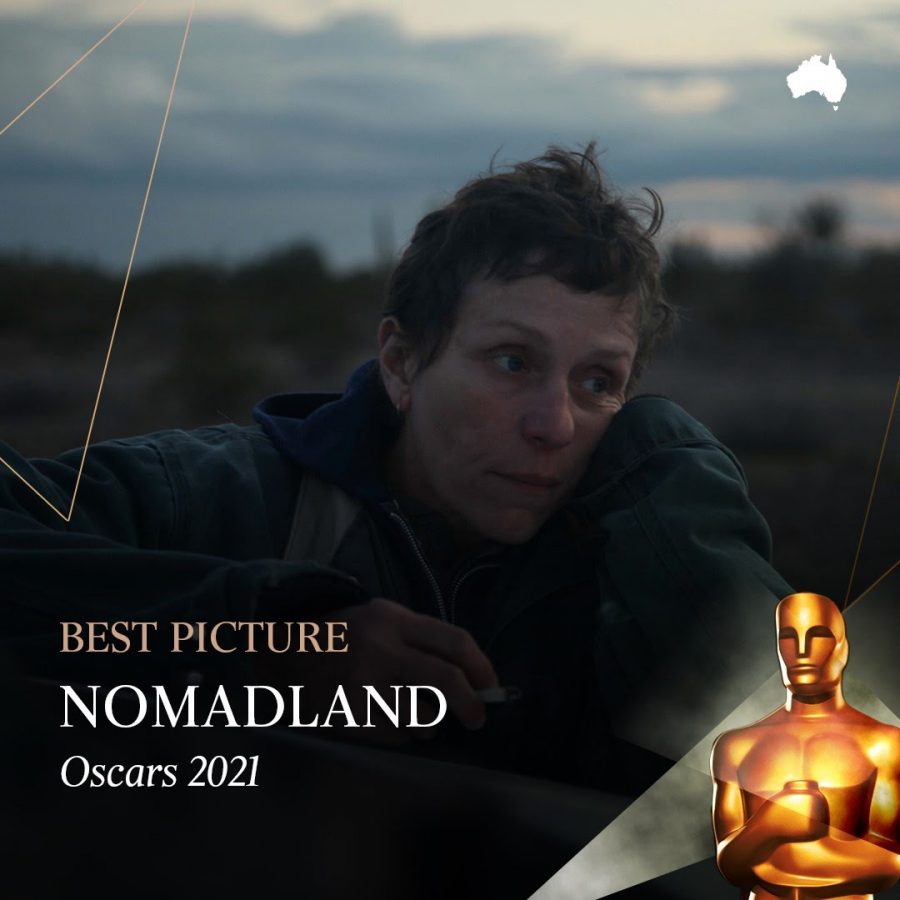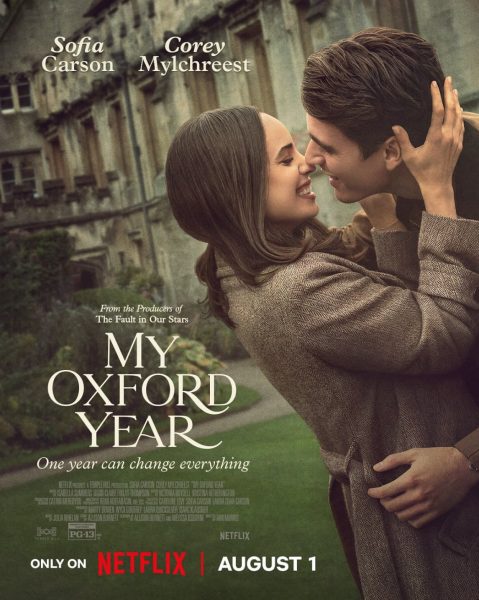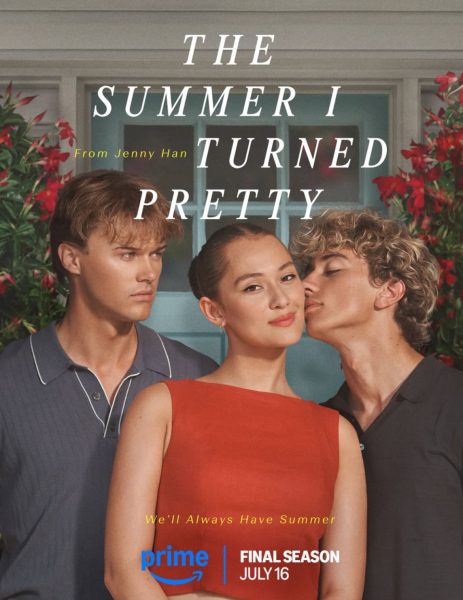The 2021 Academy Awards Brings Controversy and Low Viewership
“Nomadland,” directed by Chloe Zhao and starring Frances McDormand, took home the Academy Award for best picture. (Courtesy of Facebook)
Whether it be a dedicated participant in the industry or a fervent moviegoer, anyone involved in film waits excitedly for the Academy Awards each year. Known as Hollywood’s biggest night, described as the Superbowl for film lovers, it serves as the annual award season’s finish line.
Unlike its usual grandiose nature, the 2021 Oscars were downsized due to the coronavirus pandemic. Only presenters, nominees and guests attended the ceremony, held not at the iconic Dolby theater but at Los Angeles’ Union station, with virtual viewing gatherings held across the world for international nominees. There was certainly a change in the presentation of the awards, but the more laid back and smaller setting made the night feel more personal, the winners more relatable. It almost felt as though these stars were grounded during a normally incredibly self-congratulatory night and disconnected from their viewers’ realities.
Before delving into the numerous controversies surrounding the night, there were a lot of positives to be found. History was made a number of times. Anthony Hopkins, at 83, became the oldest actor to win an Academy Award and reportedly the first openly autistic actor to win. Mia Neal and Jamika Wilson were the first Black-led hair and makeup team to take home an Oscar. Emerald Fennell became the first woman since 2007 to win Best Original Screenplay since Diablo Cody’s for “Juno” in 2007. Youn Yuh-jung was the first Korean person ever to win an acting Academy Award. Chloe Zhao won the Academy Award for Best Director, the second woman ever, and the first woman of color to win in the Academy’s 93-year history.
There were some incredible speeches, perhaps furthered by the fact that Questlove, the show’s musical director, was instructed not to play recipients off the stage. Francis McDormand howled after “Nomadland” won best picture, Tyler Perry pleaded with his audience to “refuse hate,” and presenter Marlee Matlin gave tribute to Darnella Frazier, the brave young woman who recorded the murder of George Floyd, leading to his murderer’s conviction. Though she lost her eighth nomination, Glenn Close won over the audience during a (staged) dance to E.U.’s “Da Butt.”
However, the Oscars’ missteps are impossible to overlook. To begin, the nominees for Best Original Song performed in a ceremony before the Oscars. This being a major draw for many of the award show’s viewers certainly worked against the producer’s favor, as the show saw record low viewership. The producers also chose not to highlight the Best Picture nominees throughout the night, as they traditionally do, allowing for a minimal tribute to the fantastic films nominated. Additionally, during one of the most devastating years filled with loss, both in and out of Hollywood, the producers inexplicably chose to have a fast-moving “In Memoriam” segment that left out people such as actresses Naya Rivera and Jessica Walters and Academy Award-winning songwriter Adam Schlesinger. Among some additional controversies was the decision for the camera to pan away from Marlee Matlin’s sign language. The ceremony was also responsible for blocking an important COVID-19 testing site.
But perhaps the most egregious decision the producers made was to announce the Best Picture prior to the Best Actress and Actor winners. “Nomadland,” a heartbreakingly beautiful film about a woman living in a van showcasing modern-day nomads and their stories, took home the coveted prize. The speech featured the night’s first (and only) mention of movie theaters, urging people to return to them during post-pandemic life, a genuine shock to anyone who understands the importance of theaters within the movie theater industry. But any excitement and praise for “Nomadland” and the movie theater message were overshadowed by the program’s abrupt ending.
Joaquin Phoenix, the previous winner of the award, presented Best Lead Actor in a Film at the end of the night. Many critics, and even the producers of the film, were sure this honor would go to the late Chadwick Boseman, seemingly an explanation for switching the schedule to present this award last. However, in a major upset, the award went to an absent Anthony Hopkins. He’d offered to give a speech via Zoom from his current location in Wales if he were to win, which the producers declined. Instead, what was supposed to be an added honor to an iconic actor became an abrupt, bizarre ending to the night.
It was incredibly unfair to invite Chadwick Boseman’s widow, Simone Ledward, to eulogize her late husband on a worldwide stage and create growing publicity around his death and plan to use her pain to close out the ceremony. The nominees were even given an NFT of Boseman’s likeness, another way the ceremony attempted to profit off the pain of his loss. Not only did the switch in award presentation demonstrate this clear attempt to use Boseman’s death as a vehicle for drama at the end of their program, but it also took away from the wins of “Nomadland” and Hopkins, as the ceremony ended in an anticlimactic fashion.
The Academy Awards are a platform for showcasing and appreciating great art. With the right host and presenters, it can be a way to connect the films of the year to its audiences on a more personal level. Minimizing the grandeur of the event was certainly a start, but with no host, no music and an abundance of controversy, the 2021 Oscars fell short in trying to adapt to what audiences might wish to see.













































































































































































































